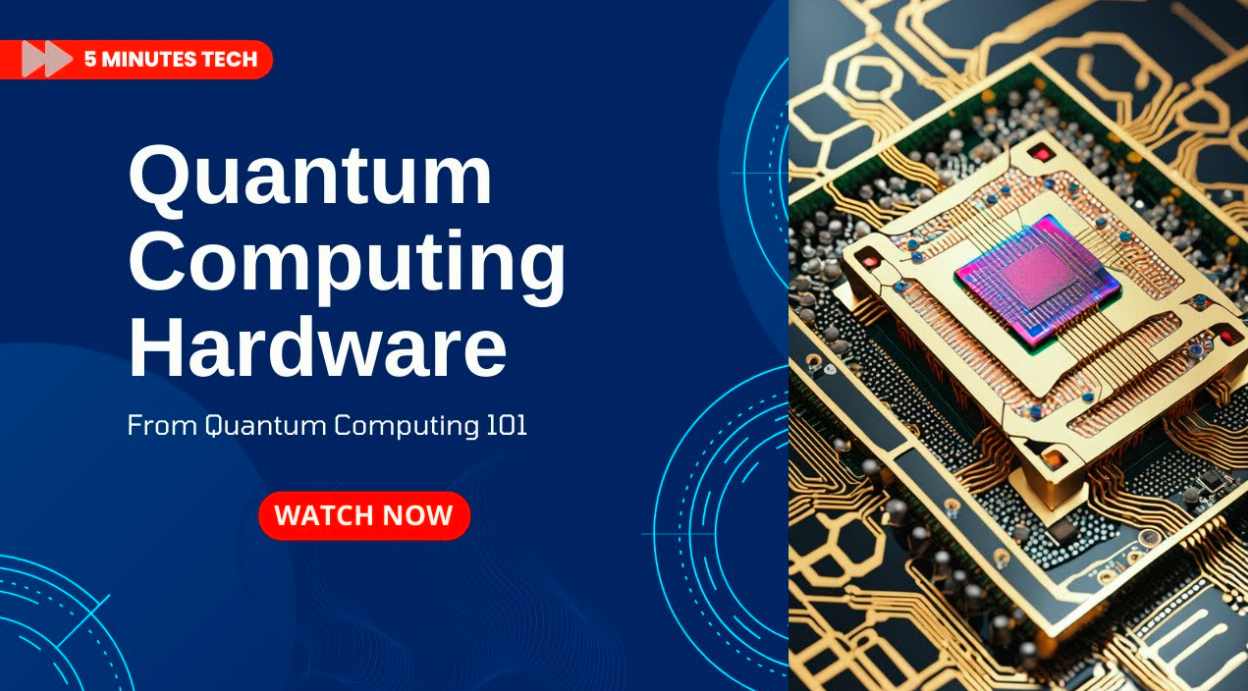
In the realm of cutting-edge technology, quantum computing stands as a revolutionary frontier, promising unprecedented computational power and capabilities. At the heart of this groundbreaking field lies quantum- computer hardware. This article serves as a comprehensive guide, delving into the fundamentals of quantum hardware, its components, and the unique principles that differentiate it from classical computing.
Understanding the Basics of Quantum Computing:
Before unraveling the intricacies of quantum computer hardware, a grasp of the core principles of quantum computing is essential. Classical computers, which have dominated the technological landscape for decades, rely on bits for information storage. These bits exist in one of two states, 0 or 1, forming the basis of binary code.
Quantum computing, however, takes a leap beyond this binary framework. It operates using quantum bits, or qubits, which can exist in multiple states simultaneously, thanks to the principles of superposition. This enables quantum computers to process vast amounts of information in parallel, potentially solving complex problems exponentially faster than classical computers.
Introduction to Quantum Computer Hardware:
Quantum computer hardware serves as the physical foundation that enables the operation of quantum computers. Unlike classical computers with silicon-based processors, quantum computers utilize qubits and manipulate them through quantum gates. Let’s delve into the key components of quantum computer hardware:
- Qubits:
At the core of quantum hardware are qubits, the quantum analogs of classical bits. However, unlike bits, qubits can exist in multiple states simultaneously due to superposition. This property exponentially increases the computational capacity of quantum computers, allowing them to perform complex calculations with remarkable efficiency.
- Quantum Gates:
Quantum gates are the building blocks of quantum circuits, analogous to classical logic gates in conventional computers. These gates manipulate the quantum states of qubits, enabling the execution of quantum algorithms. Quantum gates are designed to take advantage of superposition and entanglement, the phenomena that set quantum computing apart from classical computing.
- Entanglement:
Entanglement is a unique quantum phenomenon where qubits become interconnected, regardless of the physical distance between them. When qubits are entangled, the state of one qubit instantly influences the state of its entangled partner. This interconnectedness is harnessed in quantum hardware to enhance the parallelism and computational power of quantum computers.
Challenges and Solutions in Quantum Hardware Development:
While the potential of quantum computing is vast, the development of quantum hardware comes with its set of challenges. Some of the primary challenges include:
- Decoherence:
Quantum systems are highly susceptible to environmental factors that can disrupt the delicate quantum states of qubits. This phenomenon, known as decoherence, poses a significant challenge in maintaining the integrity of quantum computations. Researchers are actively working on error correction techniques and quantum error correction codes to mitigate the impact of decoherence.
- Quantum Error Correction:
Quantum error correction is a critical area of research aimed at developing algorithms and techniques to rectify errors that inevitably occur in quantum computations. These error correction methods are essential for preserving the accuracy of quantum calculations, especially in the presence of environmental disturbances.
- Scalability:
Building large-scale, practical quantum computers requires overcoming scalability issues. As the number of qubits increases, maintaining their coherence and ensuring error-free computations become increasingly challenging. Researchers are exploring different physical implementations, such as superconducting circuits and trapped ions, to address scalability concerns.
Key Quantum Hardware Technologies:
- Superconducting Qubits:
Superconducting qubits are qubits that leverage superconductivity to carry and manipulate quantum information. These qubits are typically implemented using superconducting circuits, and advancements in this technology are paving the way for the development of practical quantum processors.
- Trapped Ions:
Trapped ions involve the use of individual ions as qubits. By trapping ions using electromagnetic fields, researchers can precisely control and manipulate their quantum states. Trapped ion systems have shown promise in achieving long coherence times, a crucial factor for the stability of quantum computations.
- Topological Qubits:
Topological qubits are a theoretical approach to quantum computing that relies on anyons, exotic particles that exist in certain materials. The robustness of topological qubits against errors makes them a potential candidate for building fault-tolerant quantum computers.
Applications and Future Implications:
The development of quantum hardware opens the door to a myriad of applications across various industries. Some notable applications include:
- Optimization Problems:
Quantum computers excel in solving complex optimization problems, such as those related to logistics, finance, and supply chain management. Their ability to explore multiple solutions simultaneously offers a significant advantage over classical computers.
- Cryptography:
Quantum computers have the potential to revolutionize cryptography. Quantum-resistant cryptographic algorithms are being explored to secure communications in the era of quantum computing, where traditional cryptographic methods could be vulnerable.
- Drug Discovery:
Quantum computers can simulate molecular structures with unprecedented accuracy, accelerating drug discovery processes. This capability holds the potential to revolutionize pharmaceutical research and development.
- Machine Learning:
Quantum computing has the potential to enhance machine learning algorithms, offering exponential speedup in certain computations. Quantum machine learning could lead to breakthroughs in pattern recognition, optimization, and data analysis.
Conclusion:
Quantum computer hardware represents the cornerstone of a technological revolution, offering the promise of computational power beyond the reach of classical computers. As researchers and engineers continue to tackle the challenges of decoherence, error correction, and scalability, the implications of quantum hardware for industries ranging from finance to healthcare are profound. The evolution of quantum computing is not only transforming the way we process information but also opening new frontiers in scientific discovery and problem-solving. In the grand tapestry of technological advancement, quantum hardware stands as a pivotal thread, weaving the future of computing into a landscape defined by speed, precision, and unprecedented possibilities.







